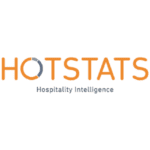 In May 2020 we published a significant report, Hospitality in the Post-Covid World. That report has been widely read (over 5,000 downloads) by industry leaders, hospitality consultants, suppliers, and educators. Other bodies within the sector followed the lead, producing specific impact reports in areas of their own interests.
In May 2020 we published a significant report, Hospitality in the Post-Covid World. That report has been widely read (over 5,000 downloads) by industry leaders, hospitality consultants, suppliers, and educators. Other bodies within the sector followed the lead, producing specific impact reports in areas of their own interests.
Our report touched on the broader strategic issues and the more lasting impact and implications. Over three years, COVID-19 has become not a disease of the past but one we are increasingly learning to live with.
Often, reports become outdated, and their relevance becomes lost. We thought it would be valuable to consider the accuracy of the issues and forecasts in that report, highlighting areas that have proven largely accurate and continue to impact the global industry.
These are the accurate forecasts and how they still impact the global industry.
- Health, safety and well-being remain paramount concerns influencing consumer and travel behaviour. Restoring consumer confidence is gradual.
- Business travel, events and conventions, especially international corporate travel, continue to lag. Virtual substitutes only partially offset in-person demand.
- Labour shortages, hiring challenges, and retention issues, especially in chefs and service roles, are ongoing due to competition from other sectors, people seeking a better work-life balance, long-term health issues and those who have ‘dropped out’ of the workforce.
- The financial viability of some businesses is threatened by high debt, uncertain demand, inflation, and supply chain disruptions. New business models are required. Some are being explored but changes are slow and the level of business failure is very high.
- Sustainability, local sourcing, social responsibility and community commitment have increased importance for consumers and businesses. This is a welcome trend but also puts additional pressure on existing business models.
- The pandemic was a catalyst for change, and digital technologies have started to transform practices and enable adaptation, including much more contactless guest interactions. Investment continues but is seen as costly and the industry is not a rapid adopter of technology.
- Domestic and local travel led to initial hospitality recovery. International and urban hospitality lagged due to travel hesitancy. This changed briefly with a surge in international travel, which is now reduced with changes in consumer behaviour and financial pressure.
- Creativity, innovation and flexibility remain essential to reimagine the hospitality experiences aligned with emerging consumer priorities. Developing new business models that accommodate new consumer priorities, the changing dynamics within the workforce and the new financial realities remain a significant challenge.
- Government support, especially for hospitality and tourism promotion, initially aided recovery but cannot continue indefinitely. The existing signs are not encouraging with governments, relegating hospitality and tourism much lower in the political agendas.
- The pandemic accelerated pre-existing trends in remote work, digital adoption, retail decline, urban dynamics, and environmental awareness. These trends will continue to accelerate and will continue to have an impact on the global industry.
- Hospitality education must adapt its curriculum, materials, and delivery models to the changing world. Enrolments are declining and the industry is now looking for both short-term and long-term solutions to their education, training and professional development needs.
- New leaders and business models succeeded while others struggled to transform. Core hospitality values proved resilient.
- The initial assumptions of a rapid “return to normal” proved wrong. The path forward remains challenging but recovery continues.
In summary, the report accurately foresaw many of the lasting impacts and key factors shaping the post-pandemic hospitality landscape. While timeframes were uncertain, the core issues influencing consumer behaviour, finances, operations, travel, workforce, sustainability, technology, education and leadership remain highly relevant. This underscores the value of strategic foresight in envisioning potential scenarios, trends and impacts to inform planning.
We are certainly not saying that we got everything right, but we are saying that we have made a significant contribution to the debate and discussion. Copies of the reports are still available for download, not just as a historical document but as an example of how we contribute to the changing world of hospitality.


















